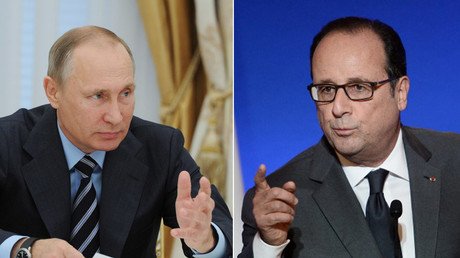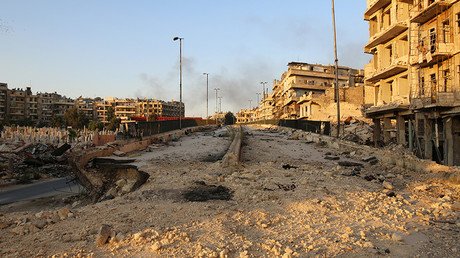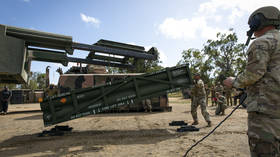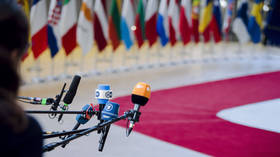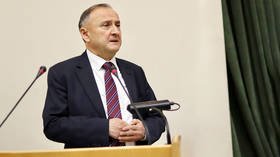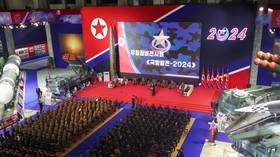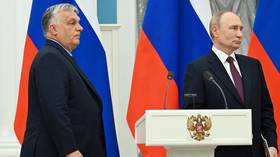‘Syrian war is conflict between West & Russia’
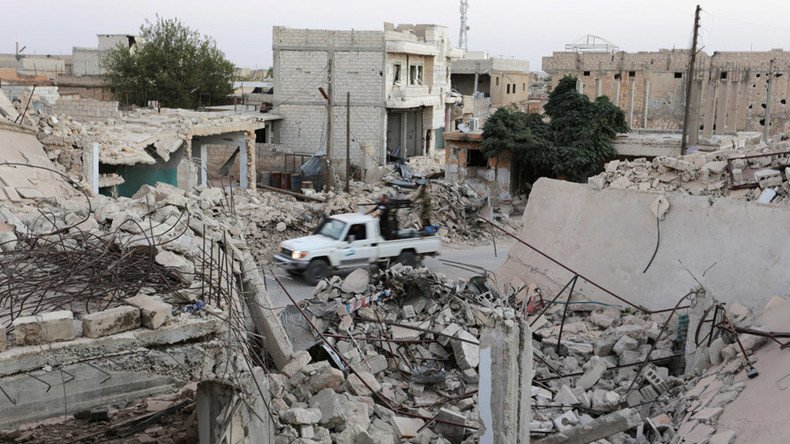
The real issue in the Syrian civil war, apart from the important one of Syria itself, is the struggle for power between Russia and the West, says John Laughland from the Institute of Democracy and Cooperation in Paris.
On Tuesday, Russian President Vladimir Putin cancelled a visit to France in a developing diplomatic spat between the two countries.
Last week, France proposed a draft resolution at the UN Security Council to resolve the Syrian crisis. It was vetoed by Russia on Saturday. Moscow said the main proposal in the French draft - a no-fly zone - could have resulted in an upsurge of violence instead of halting it.
RT: What does this mean for bilateral relations?
John Laughland: It is very serious and it is a reflection of the very serious degradation in relations, which is the result of the massive disagreement about Syria. The disagreement about Ukraine is pretty strong, but Ukraine is a bit on the back burner for the time being, while the Syrian government offensive, supported by Russia in East Aleppo, has blown apart the appearance of cooperation between Russia and the West.
I say appearance, because even though the Americans and the Russians have been trying to bring about a peace agreement for nearly the whole of this year, 2016, the fact is that all those apparent agreements have in fact hidden the big disagreement, which remains between the West and Russia. And that is on the future of Assad in Syria. No amount of half agreements or hidden disagreements can hide that very fundamental difference. The fundamental difference over Assad’s fate is what is causing this terrible fallout. And we may not have reached the bottom yet in relations between the West and Russia.
Moscow 'doesn’t see any facts that US is seriously battling Al-Nusra' - Lavrov https://t.co/DhEJCZ13b8
— RT (@RT_com) 9 октября 2016 г.
The fact is that the Russians now have since last week overtly accused the Americans, and by implication also the French and other Western allies, of deliberately wanting to protect the now renamed Al-Nusra Front in eastern Aleppo in order to use it on a future occasion to affect regime change in Syria. That is an absolutely devastating allegation. The Russians in other worlds are alleging that America and its allies are going to use terrorists as their pawns in the fight against Assad. Russia of course does not accept that outcome.
That is why we see this cancellation, because, as I say, no amount of diplomatic finesse can hide the fact that in this very serious war, which is itself an international conflict, because America – on the one hand, and Russia – on the other, are involved in this very serious war, the disagreements could not be greater.
RT: What do you think prompted Hollande to trigger what's become a diplomatic scandal? Was it the veto in the UN?
JL: That was France ratcheting up the disagreement with Russia. … [French politician] Thierry Mariani said that France has become an American “lackey” in this. That is not exactly right. Of course France fully supports the American position, but I don’t think it would be right to obscure the fact that France has taken a very proactive position on the Syrian conflict, ever since the beginning. France after all, was the first country to break off relations with Damascus in 2012. And France went beyond what the Western allies required – the EU and the Americans – by cancelling the sale of the Mistral helicopters ships earlier on …
RT: We also know that n July a French airstrike killed 120 civilians in Manbij in Syria, that's apart from the civilian casualties of French interventions in half a dozen African countries. Is this not a clear contradiction? One rule for one and another for the rest?
JL: This all comes back to the disagreement about Assad and about the Assad regime in Syria. France by breaking off diplomatic relations with Damascus in 2012 clearly took the position long before other countries that “Assad had to go.” These airstrikes and the other things, which, according to the Russians, favor the terrorist rebellion in Syria – all these are part of a coherent policy on the part of France and the other Western countries – which is to overthrow Assad in Syria. No amount of talking in the Security Council or of summitry can overcome this basic disagreement about the future of Syria, a basic disagreement, which of course has being played out in the form of warfare in Syria itself, and which comes on the back of other very fundamental disagreements, particularly on Ukraine.
#Syria appeals to UN after French & US airstrikes 'kill over 140 civilians' https://t.co/CtP6mN46E0pic.twitter.com/cOPID7Utoe
— RT (@RT_com) 20 июля 2016 г.
RT: Is this part of a wider move against Russia over the war on Syria?
JL: …Now that Russia has become a party to the war in Syria, since last year…on the side of the Syrian forces. This aggravated the situation with the West, because not only has Russia successfully prevented Assad from falling, because a year ago there was every chance that he would indeed be overthrown, but Russia has also increased her own position on the international stage. That is something that the Western powers do not like…In some ways we should see this Syrian conflict as a conflict between the West and Russia. Four years ago I said that the real target in Syria was not Assad but Putin. I think we can see this angle coming back again. The real issue in this civil war – apart from Syria itself which is a very important one – is also a struggle for power between Russia and the West.
The statements, views and opinions expressed in this column are solely those of the author and do not necessarily represent those of RT.
